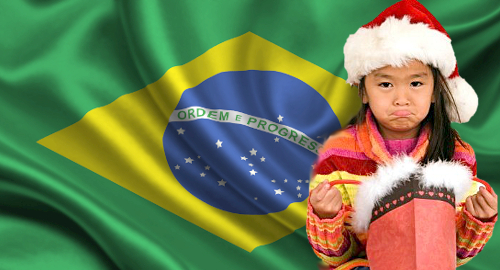 Brazil’s long-delayed gambling legislation likely won’t come up for a vote until the spring after legislators decided they had more pressing issues on their plates.
Brazil’s long-delayed gambling legislation likely won’t come up for a vote until the spring after legislators decided they had more pressing issues on their plates.
Brazilian legislators had hoped to schedule a vote on their two competing gambling bills – the Senate’s 186/2014 and the Chamber of Deputies’ 442/1991 – in early December but both bills were bumped due to other priorities, including dealing with the fallout from a Supreme Court injunction removing Senate President Renan Calheiros from office after he was indicted for embezzlement.
On Tuesday, Senator Fernando Bezerra Coelho appeared on Radio Jornal de Pernambuco’s Super Morning program, at which he confirmed that the 186/2014 bill had been referred to the Committee on Constitution, Justice and Citizenship (CCJ) during the legislature’s final deliberative week earlier this month.
Coelho, a key backer of Brazil’s efforts to liberalize its gambling market, offered hope that the CCJ would be prompt in analyzing the bill “so that it can finally be deliberated by the Plenary.” But Coelho suggested it might take until “March, April, we can gather support necessary for the activity of gambling to be legalized in Brazil.”
In November, Brazil’s influential Catholic clergy urged the nation’s voters to pressure politicians to reject gambling liberalization to prevent “irreparable moral, social and family damage.”
Coelho admitted that the religious objections “will carry a very great weight in the debate on this issue,” but pointed to other countries with equally strong religious lobbies like the United States, Spain, Portugal and France, that had managed to strike a compromise with gambling interests.
Coelho emphasized that gambling expansion offered Brazil the opportunity to “generate jobs, generate income, generate taxes, so that the country can live better times.”
Coelho claimed that lotteries and gambling accounted for “between 1.5% and 2% of the world’s economic activity,” yet the figure in Brazil was a mere 0.3% of the nation’s gross domestic product, leaving significant slack to be taken up. Coelho also noted that 40% of lottery activity now happens online, and the senator believes that Brazil needs “to take a step in the direction that other countries are taking.”
Brazil’s competing gambling bills aim to modernize the sector by authorizing up to 35 land-based casinos, as well as sports betting, bingo parlors and the ‘animal game’ lottery. There are also vague plans to authorize “electronic bets,” although legislators reportedly favor an online monopoly run by the Caixa Economica Federal bank, which currently controls the country’s lottery operations.